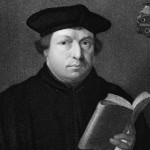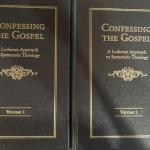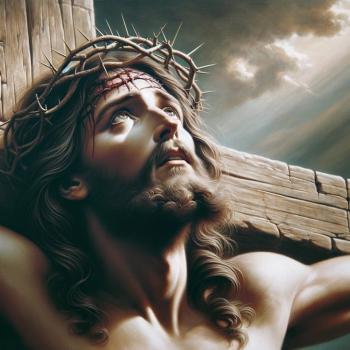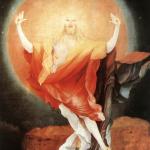It should be of no surprise to my readers that I have profound areas of disagreement with Robert Jenson. He promoted a form of process Theism [1] based upon a modified theology of hope [2], while I hold to a more Thomistic approach to the doctrine of God. Yet, despite whatever disagreements I have with him, I recognize Jenson to be one of the most significant Christian thinkers of the last century. His brilliance is perhaps only surpassed by Karl Barth.
One of Jenson’s most important theological concerns was for ecumenicity. It was in such ecumenical talks that Jenson was perhaps most important, as he helped to start the Pro Ecclesia journal, and brought the Finnish Luther research of Tuomo Mannermaa to the attention of American readers. It is in this second area wherein Jenson has impacted my own thought in a profound way, as connections between Luther’s idea of union with Christ and Patristic conceptions of theosis were made clear. He also consciously attempted to bring forth insights from Byzantine fathers into contemporary Trinitarian dialogue, which has been impactful upon my understanding of both the fathers and modern Trinitarian discussions.
Where Jenson’s insights are the most profound is in his writing about divine identity, wherein God is defined as “whoever rescued the Israelites from Egypt,” in Old Testament terms, and for the people of the New Covenant as “whoever raised Jesus from the dead.” Jenson recognized that God is known first and primarily through his interaction with his people in history, through acts of redemption. I have often used these insights in my own preaching, despite my concern that Jenson conflates the immanent and economic Trinities in his exposition.
I am sad to hear of Jenson’s passing, but I have known that he has suffered from Parkinson’s for some time, which is a vicious and painful disease. His memory is sure to be one that will live on through the history of the church, and it is likely that he will be remembered as the most brilliant theologian America has ever produced alongside of Jonathan Edwards. On whatever theological topic I am currently studying and writing on, I always tend to go back to Jenson to observe his insights into the issue, not because I will agree, but because he always offers a unique perspective which stimulates my own thinking. His legacy has impacted me, and I’m sure that he has done the same for so many in the field of theology, as he will for decades to come.
[1] By process Theism, I do not mean the specific ideology of Alfred North Whitehead. I am using the term in a more general sense in reference to those theologies which posit change in God through the process of history. Jenson’s critics have often called him Hegelian in this regard, but he has rejected such a label. Jenson’s view is unique enough that it cannot really be accurately characterized by any general title.
[2] See his article “Second Thoughts about Theologies of Hope,” in Theology as Revisionary Metaphysics, 38-49.
















